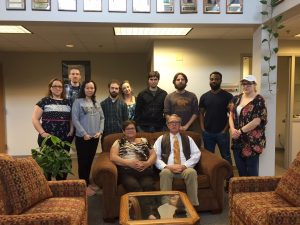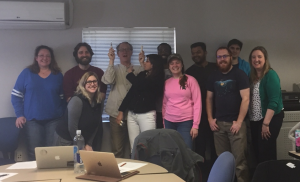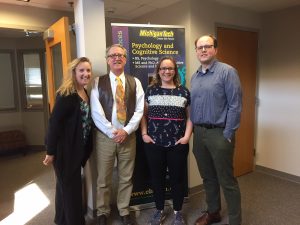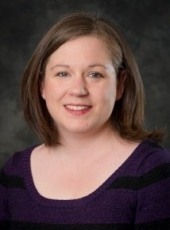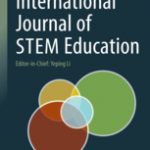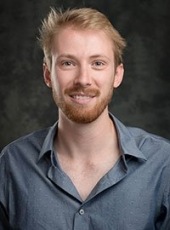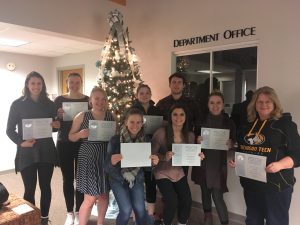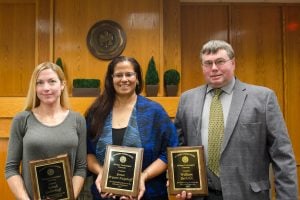 Over the past 10 years I’ve taken my love of teaching chemistry to the community and volunteer bringing hands-on learning to schools, organizations, libraries, the children’s hospital, and television science segments on ABC affiliate stations (WZZM 13 in Grand Rapids, Michigan and ABC7 in Fort Myers, Florida). I present a blend of smart and entertaining hands-on science activities that motivate kids to continually question and investigate their world. My encouragement is to never stop being curious and never stop seeking the answers.
Over the past 10 years I’ve taken my love of teaching chemistry to the community and volunteer bringing hands-on learning to schools, organizations, libraries, the children’s hospital, and television science segments on ABC affiliate stations (WZZM 13 in Grand Rapids, Michigan and ABC7 in Fort Myers, Florida). I present a blend of smart and entertaining hands-on science activities that motivate kids to continually question and investigate their world. My encouragement is to never stop being curious and never stop seeking the answers.
In addition, I utilize mobile technology in my teaching in the chemistry classroom, laboratory, and science outreach. I’ve authored several technology grants and have led several workshops at local colleges and schools teaching on the integration of mobile technology in the classroom.
I started into the education program at MTU as a junior as a result of two friends majoring in mathematics that convinced me to join them. I really wasn’t expecting to go into teaching. I loved chemistry and was planning on a career as a research chemist. Standing in front of a group of people was always so fearful to me. As I got farther into the education program, I started to discover how much I was enjoying my classes. It got me thinking how many college chemistry professors really don’t know how to teach. This motivated me more in the education program at MTU. I started to feel like I could be that change and teach chemistry better than it was taught to me. The education program at MTU gave me that “face your fear and find your passion” moment. I faced my fear of being in front of a group of people and found a passion that made everyday of going to work since, a joy.
My advice to current teachers is to do what you love. If you don’t find a love in your subject or in teaching it, don’t force it. The teaching world is filled with too many who complain about teaching, students, and the hard work for so little pay. Yes, the pay is little and yes, the work is hard… but if you love it, you will not regret a day of your career choice. You will make a difference to the world because you’re giving the good part of yourself, the happy part.
Always be yourself and do not teach a particular style just because that’s how you were taught. Teaching is always evolving and be ready for constant change. The best experiences you can bring to the classroom are your life experiences. Use your personality and life experiences to make the best environment for learning. In the early years of your teaching, keep learning more hands-on about your subject and education. Substitute teach, participate in research, attend workshops and seminars, become active at your school. And if you have time, volunteer in your community.
If you’re enjoying teaching, then your students are probably enjoying learning. And if your nervous, that is good because nerves means you care. The day I’m not nervous or a bit scared to go into a classroom might be the day I might be ready to retire from teaching.
To learn more, check out Chemical Kim’s social media sites: www.youtube.com/scistudio, www.chemicalkim.com
